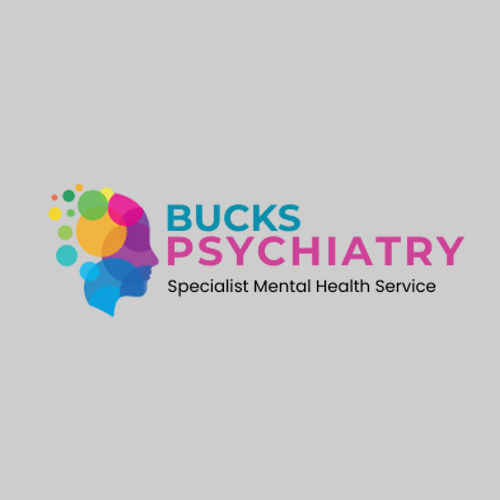Attention-Deficit/Hyperactivity Disorder (ADHD) is often perceived as a childhood condition, but many adults struggle with its symptoms long after their early years. ADHD can significantly impact various aspects of an adult’s life, from work performance and relationships to emotional well-being and daily routines. Understanding ADHD in adults is key to managing the condition effectively and leading a fulfilling life.
What is ADHD?
ADHD is a neurodevelopmental disorder that affects how individuals process information and regulate their behavior. It is characterized by three core symptoms:
- Inattention – Difficulty staying focused, organizing tasks, and following through with responsibilities.
- Hyperactivity – Restlessness, difficulty sitting still, and a constant need to be active.
- Impulsivity – Making hasty decisions without thinking about the consequences, interrupting others, or having difficulty waiting for a turn.
While hyperactivity may diminish with age, symptoms of inattention and impulsivity can persist into adulthood, often leading to significant challenges.
How ADHD Manifests in Adults
In adults, ADHD often looks different than in children. Many adults with ADHD struggle with tasks that require sustained attention and organization, such as meeting deadlines, managing time effectively, or keeping track of personal responsibilities. They may also experience emotional dysregulation, such as frustration or irritability, when dealing with tasks they find overwhelming.
Some common signs of ADHD in adults include:
- Chronic procrastination or difficulty starting tasks
- Forgetfulness or losing track of appointments, dates, or possessions
- Difficulty prioritizing or completing long-term projects
- Trouble maintaining focus in meetings or conversations
- Impulsive decision-making or risky behaviors
- Relationship difficulties due to forgetfulness or inattention
ADHD and Co-occurring Conditions
It’s important to note that ADHD often coexists with other mental health conditions. Adults with ADHD may also experience anxiety, depression, or substance abuse problems. These co-occurring conditions can make it harder to identify and treat ADHD, as symptoms may overlap. It’s essential to seek professional guidance for a comprehensive assessment to address all underlying issues.
Diagnosis and Assessment
Getting diagnosed with ADHD as an adult can be a challenging but crucial step. Unlike children, who are often diagnosed through parental feedback and school performance, adult ADHD requires a detailed evaluation that considers personal history, lifestyle, and symptom patterns. A psychiatrist or clinical psychologist typically conducts this assessment using interviews, standardized questionnaires, and feedback from family members or colleagues.
The process may include:
- A thorough review of personal and medical history
- An assessment of symptoms, behaviors, and their impact on daily life
- Standardized ADHD-specific screening tools
- Evaluation for any co-occurring conditions
Treatment Options for Adult ADHD
ADHD is a highly treatable condition. The key to managing ADHD effectively is finding a treatment plan tailored to the individual’s unique needs. Treatment often includes a combination of medication, therapy, and lifestyle adjustments.
1. Medication:
Stimulants, such as methylphenidate (Ritalin) or amphetamines (Adderall), are commonly prescribed to help manage symptoms of ADHD. These medications increase dopamine levels in the brain, which helps improve focus and reduce impulsivity. Non-stimulant medications, such as atomoxetine (Strattera), can also be effective for some individuals.
2. Cognitive Behavioral Therapy (CBT):
CBT is particularly effective in helping adults with ADHD develop coping strategies for managing inattention and impulsivity. Therapy may focus on time management, organizational skills, emotional regulation, and goal setting.
3. Lifestyle Adjustments:
Lifestyle changes play a significant role in managing ADHD. Regular exercise, a balanced diet, and adequate sleep can improve overall brain function and mental health. Creating structured routines, setting reminders, and breaking tasks into smaller steps can also help adults with ADHD stay on track.
4. Support and Education:
Participating in ADHD support groups can provide adults with a sense of community and shared experiences. Psychoeducation is also important in helping individuals understand how ADHD affects their lives and how they can better manage the symptoms.
Living with ADHD
Living with ADHD as an adult doesn’t have to be overwhelming. With the right strategies in place, individuals can thrive both personally and professionally. Here are a few tips for managing ADHD:
- Prioritize tasks: Break down large tasks into smaller, more manageable steps.
- Use organizational tools: Digital reminders, planners, and to-do lists can help keep track of appointments and deadlines.
- Create structure: Establish daily routines and maintain consistency in your environment to reduce distractions.
- Build a support system: Reach out to friends, family, or colleagues for help when needed.
- Be kind to yourself: Managing ADHD takes time, and setbacks are a normal part of the process. Celebrate small successes and be patient with yourself.
Conclusion
ADHD in adults is often misunderstood, but with proper diagnosis and treatment, individuals can lead productive, fulfilling lives. If you or someone you know is experiencing symptoms of ADHD, seeking professional help from a psychiatrist or psychologist is the first step toward understanding and managing the condition. At Bucks Psychiatry, we specialize in the diagnosis and treatment of adult ADHD, offering personalized care to help you reach your full potential.
If you’re ready to take control of your mental health and learn more about ADHD, reach out to us today to schedule a consultation with one of our experienced specialists.
Sources:
- National Institute of Mental Health (NIMH)
- UK Adult ADHD Network (UKAAN)

